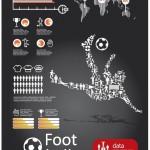This is a guest post by Max Wendkos
 “Congrats, you’ve been chosen! Get a magazine, blanket & bonus gifts.”
“Congrats, you’ve been chosen! Get a magazine, blanket & bonus gifts.”
Normally, I’d expect Gmail to automatically identify this e-mail subject as spam and filter it out of my inbox. After all, the sender of such e-mails tends to be a “Nigerian prince,” except that he’s usually looking to quickly transfer me a cool $10 million with no strings attached.
However, this e-mail didn’t come from a fake e-mail account. It wasn’t a scam at all. It was just a standard promotional e-mail from Major League Baseball.
There a few glaring problems with today’s incredibly exciting, once-in-a-lifetime opportunityboilerplate promotion:
- We all know that we weren’t “chosen.” And we certainly weren’t “chosen” with an exclamation point. If anything, we chose MLB when we opted into the e-mail list.
- If you’re going to provide me a list of things I was “chosen” to receive for “FREE,” don’t put an asterisk at the end of the sentence.
- By clumping all of your fans together, you’re losing us.
The first two problems are fairly obvious and require nothing more than a quick fix. Simply, don’t lie to your fans and don’t omit information (which, as far as I’m concerned, is also lying). I promise you that we aren’t nearly as dense as you think we are.
The third problem, though, requires a bit of thought and is easily the most important of the three.
Sports fans are diverse. I’m not talking about the fact that fans root for a diverse set of teams, because that’s not actually comparing sports fans. That’s comparing groups of fans. I’m talking about diversity at the individual level. Though I may root for the same teams as the 46-year-old mother of three who lives next door to me, our fandom most likely plays a very different role in our lives. And as a result of this, leagues and franchises cannot effectively communicate with us if they insist upon addressing us as one.
Major League Baseball has a sales team and I can assure you that nobody on this team would ever think of pitching a potential client or partner without first taking a little bit of time to learn about the individuals and the business that they’re addressing. After all, you can’t speak to your potential customer’s problems and the value you can offer if you don’t know something about who you’re talking to. Well, the same principle has to apply to these e-mails.
Until companies begin to speak to their customers’ personalities, habits, and needs at an individual level, the majority of fans are going to tune out everything that they say. Unfortunately, that includes the messages we might actually be interested in.
Some industries have started to figure this out, but as usual the sports industry is lagging behind; Major League Baseball is hardly the only sports property to broadcast messages to large groups of fans without any consideration to what they’re actually interested in hearing. In fact, it’s common practice.
This is a problem that I’m incredibly passionate about solving and I’m excited to create a solution that proves mutually beneficial to sports properties and their fans.
“Max Wendkos is the founder of FanChief, an early-stage startup designed to provide sports teams with a social CRM solution. He has previously worked for MLB Advanced Media, the Kansas City Royals’ minor league affiliate Wilmington Blue Rocks, and the Penn State Athletic Department. Follow him on Twitter @MaxWendkos.”




@TylerDJohnson Thanks. You do sales for the Nuggets? Would love to schedule a call to hear about your experiences there.
Excellent article! We are linking to this great article on our site.
Keep up the great writing.
Hey There. I found your blog using msn. This is an extremely well written article.
I’ll make sure to bookmark it and come back to read more of
your useful information. Thanks for the post. I will definitely return.